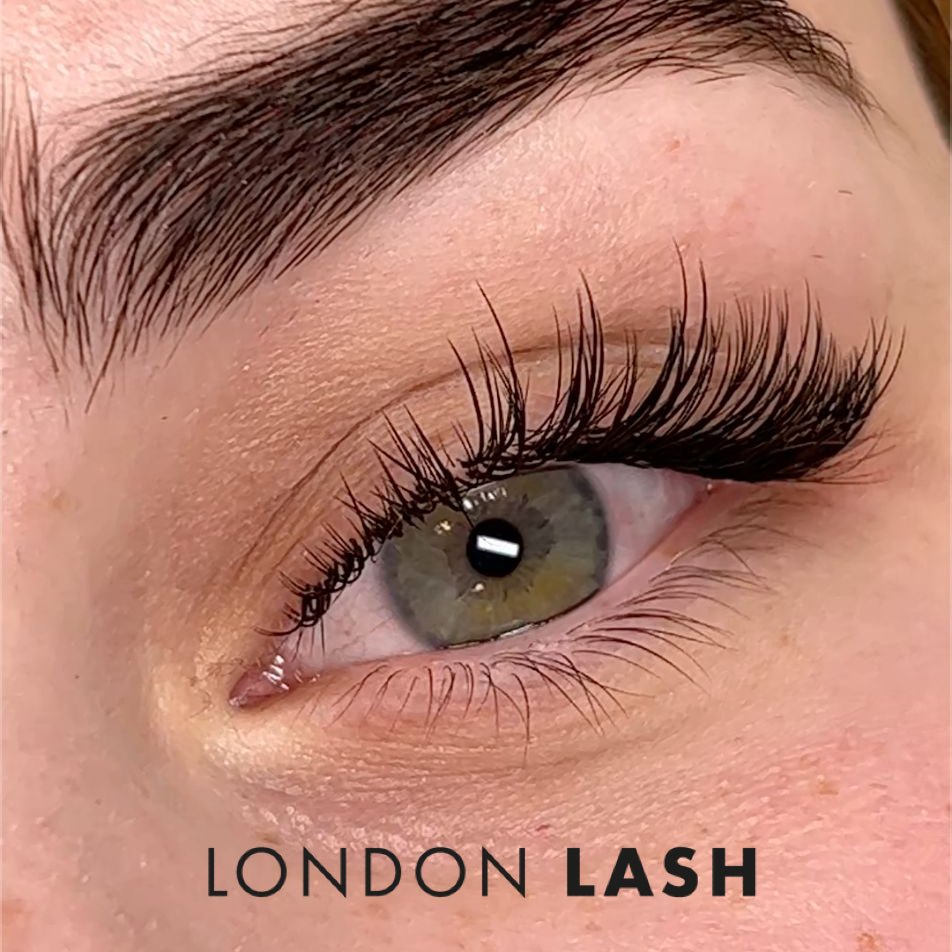Glues & Liquids
EYELASH EXTENSIONS
TRAINING
Educators Club
Pre-Glued Cluster Lashes
Our Pre-Glued Cluster Lashes
MYTH: Eyelash Extensions Cause Damage!
3 min read

FACT: Eyelash Extensions Are SAFE!
No matter which lash extensions your client comes into your salon for, Classic Lashes, Hybrid Lashes or even Mega Volume Lashes, there is always the question of, "Are eyelash extensions damaging?" We are asked what products to use for lash extensions and how does a client use aftercare correctly to make sure their retention is long and healthy. We're here to help you get the grips with the science behind lash extensions and what it is that makes them safe.
The history of eyelash extensions is interesting, they have been known to exist since the early 2000s. You can read more about their history here. Back when eyelash extensions were gaining traction in the early 00s, they were much thicker and there was far less being done in the way of isolating the natural lashes - think party lashes as opposed to single eyelash extensions. Furthermore, the original lash extensions were not vegan, which is actually cruel and something we strive not to return to.
Since then, the eyelash industry has changed and developed a lot. Of course we’re still looking to accentuate our eyes with these treatments, but we’re taking a much more scientific approach. How does the natural growth cycle of the hair play into the treatment? How can we ensure that what we’re doing is safe? Is there such a thing as Classic Lashes that are too thick?

Are Eyelash Extensions Safe?
The short answer is YES. The slightly longer answer is yes, as long as they’re applied and looked after properly. The biggest risks with eyelash extensions (at least these days) are allergic reactions to the lash glue, but those are quite rare and, believe it or not, happen more for those clients who have been having lashes for years, rather than newer clients. Needless to say allergic reactions can happen at any time so this is a risk worth noting to you clients.
Another risk is eye infections resulting from an imperfect (or non-existent) aftercare routine. If your clients don't clean their lashes regularly they'll get a build up of sebum around the roots, which will result in an infection called blepharitis, which is bad enough by itself, but left unchecked it invites little mites into your lashes which feed on that sebum and even on the lash roots. This is super rare avoidable, so just make sure your client is cleaning their lashes every day using Lash Shampoo!
The only time eyelash extensions won’t be safe is if you use too much glue or not isolating correctly which can lead to things like stickies, or if you're using extensions which are too thick or long, which will weigh down the natural lashes which can damage their structure over time.

Do Eyelash Extensions Hurt?
Nope! Again, when they’re applied correctly clients shouldn’t experience any pain or discomfort. If you’ve never had extensions before and you go straight for volume you may just notice them sometimes if you look upwards - this is super normal, and you’ll stop noticing them entirely after an hour or so! The only other time you’ll be aware of them (other than during cleaning) is in strong winds. So advising a client on something comfortable for their first ever lash set is advised.
If a client does feel any pain or discomfort, such as a pinching sensation on their lash line, it will most likely mean that you have a stickie or two to fix. Advise your client not to rub their eyes, and tell them to come in so you can fix the issue - the likelihood is that you can separate them quickly and with ease.
Now, if a client wakes up the day after a lash appointment and their eyelids are red or swollen (this can happen in both eyes or just on one) it means they have had an allergic reaction to the lash glue, and you should contact you, their technician to have them removed. Never advise on medicines as you are not a medical professional.

What Should You Use?
As a Lash Tech you should assess what the client likes and perform a full consultation, whether that's very natural, a mascara effect or something a little more dramatic, and choose the lashes accordingly. The extensions themselves are made from a synthetic, vegan friendly fibre called PBT, which is a type of plastic that is typically used in wiring. It keeps its shape when exposed to heat (unless it's SUPER hot) and water, so it's the perfect material to use for lashes! As well as this, use some glue which is formulated specifically for eyelash extensions, and clean the lashes before you start so as to ensure great retention and correct Pretreatment!
Interested in taking a classic eyelash extensions course? Check out our Affiliate Trainers!
Check out these featured products
+3 More
L B JSubscribe
Sign up to get the latest on sales, new releases and more …




















